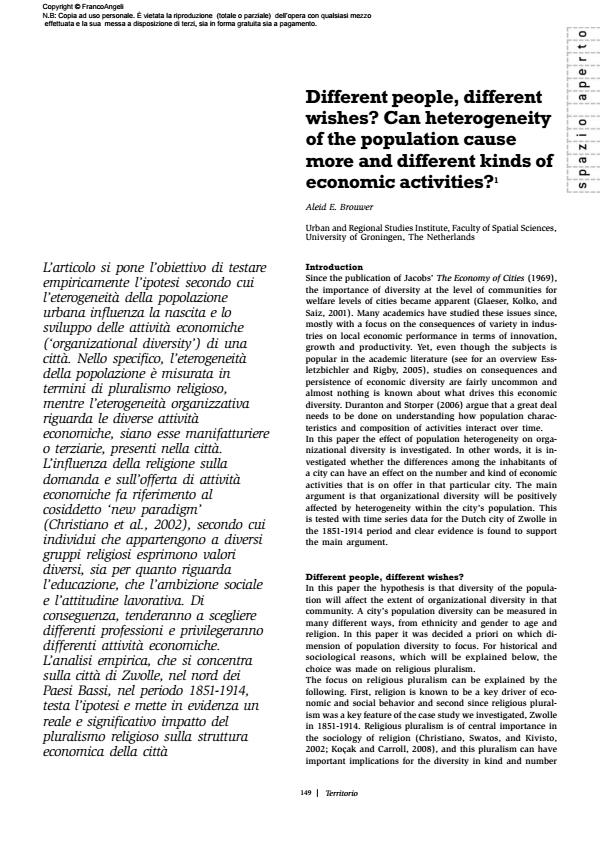Different people, different wishes? Can heterogeneity of the population cause more and different kinds of economic activities?
Journal title TERRITORIO
Author/s Alei E. Brouwer
Publishing Year 2009 Issue 2009/50
Language English Pages 5 P. 149-153 File size 440 KB
DOI 10.3280/TR2009-050016
DOI is like a bar code for intellectual property: to have more infomation
click here
Below, you can see the article first page
If you want to buy this article in PDF format, you can do it, following the instructions to buy download credits

FrancoAngeli is member of Publishers International Linking Association, Inc (PILA), a not-for-profit association which run the CrossRef service enabling links to and from online scholarly content.
<em>Different people, different wishes? Can heterogeneity of the population cause more and different kinds of economic activities?</em> - The objective of the article is to empirically test the hypothesis that the heterogeneity of an urban population influences the creation and the development of the businesses and economic activities (‘organisational diversity’) of a city. More specifically, the heterogeneity of a population is measured in terms of religious pluralism, while organisational heterogeneity concerns the different economic activities, both manufacturing and services, present in a city. The influence of religion on economic demand is based on the ‘new paradigm’ (Christiano et al., 2002), according to which individuals who belong to different religious groups have different values with regard to education, social ambition and attitude to work. As a consequence, they tend to choose different professions and prefer different economic activities. The empirical analysis, which is conducted on the town of Zwolle in northern Holland in the period 1851-1914, tests the hypothesis and finds a real and significant impact of religious pluralism on the economic structure of the town.
Alei E. Brouwer, Different people, different wishes? Can heterogeneity of the population cause more and different kinds of economic activities? in "TERRITORIO" 50/2009, pp 149-153, DOI: 10.3280/TR2009-050016